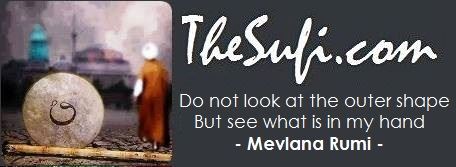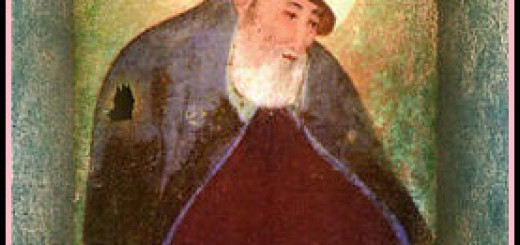Letter to TheSufi.com from Wazir Dayers, Famous Writer and Translator of Sufism Books
Dear Brother W,
It may surprise you if I tell you that I am an ardent lover of qawwali, sufiana kalam in general and Hindustani classical music. And yet it’s the truth. It would be no exaggeration to say that I’m addicted to these music genres. I bought my first LP with qawwali by Ustad Nusrat Fateh Ali Khan in 1987. Soon after, I bought my first LPs by the Sabri Brothers, and of other qawwals, like Ustad Jafar Hussain Khan Badauni (passed away in in the 1990s). Later I also found qawwali from qawwals belonging to the Qawwal Bachchon ka Gharana, e.g. Ustad Meraj Ahmad Nizami (who passed away in October 2015), Ustad Bahauddin Khan (1934-2004), Ustad Munshi Raziuddin (1912-2003) and his immensely gifted sons, Ustad Farid Ayaz & Ustad Abu Muhammad.
As qawwali is related to the classical music of Pakistan and India (and partly shares its origin with it, through the genius of Hazrat Amir Khusrau – R.A.), I also explored Hindustani classical music. It wasn’t long before I fell in love with this music too, and that love continues to this day. Over the years, I have amassed a sizable collection of audio tapes, LPs and CDs with qawwali and Hindustani classical music.
I can enjoy many music genres, but there’s no music that affects me so profoundly as qawwali and Hindustani classical music. It doesn’t just move me aesthetically, but also in a way that is impossible to put into words. I’m sure you know what I mean.
Since you offer qawwali and sufiana kalam on TheSufi.com, I thought it might be a good idea to send you some music you may not have heard yet: a number of qawwalis by the marvellous Haji Ghulam Farid Sabri and Haji Maqbool Ahmad Sabri. The items I’m sending you are taken from a concert they gave in France in 1978. The main pieces from this concert were first released on an LP in France in 1981. In 1991, the LP was reissued in CD format.
After the Saazina , the qawwals sing an Urdu qawwali, “Na Samjho Khak Ka Putla Jamal-e-Kibriya Main Hoon”; the lyrics of this qawwali were written by Hazrat Ambar Shah Warsi (R.A.) and speak of the inner reality of the mystic. Hazrat Ambar Shah Warsi of Ajmer initiated Ghulam Farid Sabri into the Warsi Sufi Order and bestowed the name “Alam Shah Warsi” on him. The Warsi Sufi Order was founded by Hazrat Waris Ali Shah of Dewa, India (R.A.), who lived from 1819 to 1905. Hazrat Waris Ali Shah (R.A.) himself was an inititate of the Chishti and Qadiri Sufi Orders.
This qawwali is followed by an Urdu na‘t full of yearning and love for the Holy Prophet (PBUH): “ Yaad-e-Nabi Mein Har Dam Rona Achcha Lagta Hai”. After that you’ll hear a stirring rendition of the Sufi evergreen “ Dama Dam Mast Qalandar”, and finally, Hazrat Baba Bulleh Shah’s well-known and very popular Punjabi kalam “Mera Piya Ghar Aaya”. The introductory verses are by Hazrat Khwaja Ghulam Farid (1845-1901 – R.A.)
Listening to the majesty of Haji Ghulam Farid Sabri’s voice and the exquisite classical taans(taans are classical melodic figures, used as embellishment) by Haji Maqbool Ahmad Sabri is sheer delight to me, and I hope you’ll share that sentiment. Maqbool Sabri Ji was not just trained as a qawwal, but was also trained in Hindustani classical singing.
The qawwalis that I’m sending you today are very dear to me. They are sung with such passion and fervour, and are charged with a such a powerful spiritual energy. Furthermore, the vocal artistry displayed by the Sabri Brothers is absolutely breathtaking. How fortunate we are that we have recorded music; before sound could be recorded, the situation was quite different: once a song or piece of music had been sung or played, it was gone forever, and only its memory remained in the hearts and minds of those who had heard it.
At the end of “ Mera Piya Ghar Aaya”, Haji Ghulam Farid Sabri sings sargam taans (improvising wile singing the names of the notes – sa, re, ga, ma, pa, dha and ni), and this is combinded withbol baant (melodic improvisation using the words of the song) by his younger brother – they complement each other so brilliantly! The song culminates in a sublime classical chakradhar tihai(a tihai is a pattern that is repeated three times; a chakradhar tihai is a tihai with three sub-tihais. It is often used in classical music – vocal and instrumental – to conclude the presentation of a raga).
Before I end this email, let me be clear on three things: firstly, I am not an expert on qawwali or Hindustani classical music; all I know about these music genres comes from listening to them for more than 28 years and reading about them. If anything, I consider myself “an advanced amateur”. Secondly, I understand a little Urdu (and a little Punjabi), again through listening to qawwali for such a long time, but I don’t speak these languages. And thirdly: if you already know the musical terms I mentioned, I apologise – I don’t mean to insult your intelligence.
I hope you’ll enjoy the music pieces I send you; If you like you can post these qawwalis on TheSufi.com – that’s up to you.
Enjoy, Dear Brother!
Wazir




